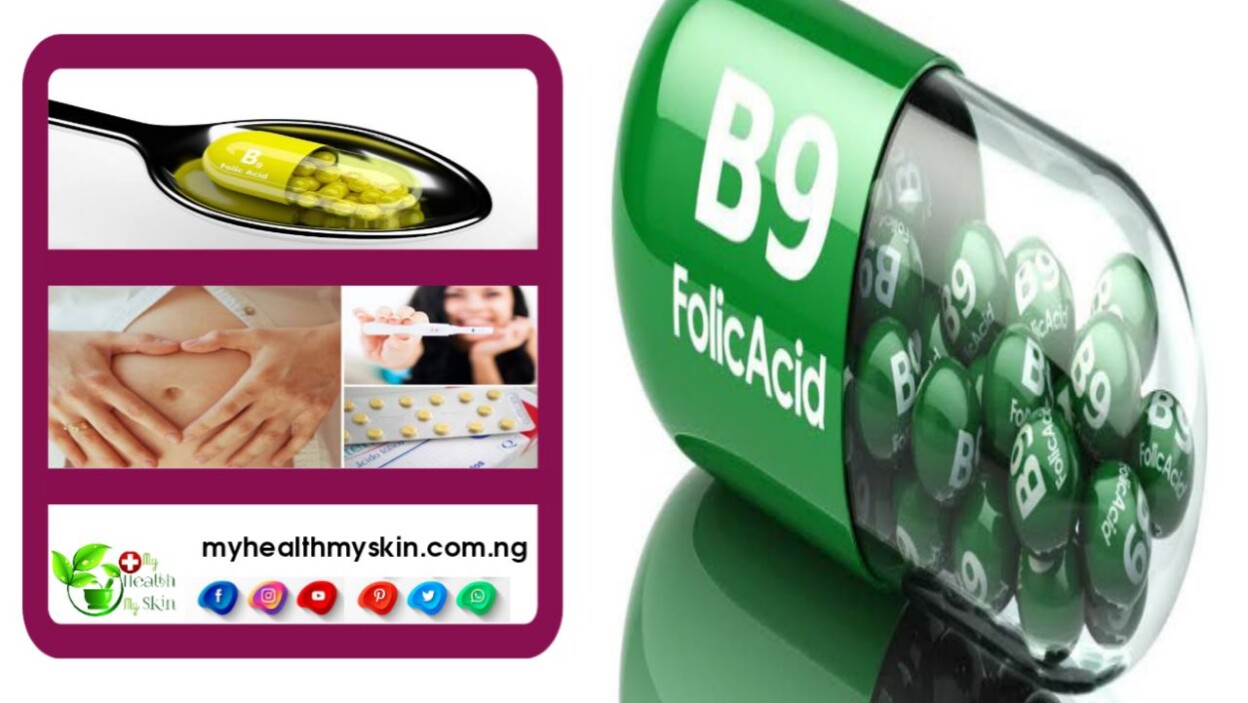If you’re pregnant or trying to get pregnant, you’ve certainly heard of folic acid, an important vitamin for the healthy development of your baby. It must be taken even before the woman becomes pregnant, as it acts in the first four weeks of pregnancy.
In today’s article, we’re going to talk about the importance of folic acid and answer the main questions about the intake of this nutrient.
What is folic acid?
Folic acid also known as vitamin B9, folate or methylfolate is a nutrient that is part of the B complex. It is present in several items in our food routine.
Folic acid is necessary for many functions in the human body, such as cell division and growth, building new proteins, forming red blood cells, and is an important part of cardiovascular and nervous system health. It acts in the prevention of problems such as depression, anemia, colon cancer and heart disease. And one of its best-known benefits is preventing injuries to the baby’s neural tube during pregnancy.
Read Also: How To Boost Fertility In Your 30s
Why is folic acid so important?
Pregnant women should take folic acid supplements for a number of reasons that are very relevant to their health, as well as that of their developing baby.
They are:
Folic acid helps prevent diseases of the neural tube in the baby, such as spina bifida (when the spinal cord does not close completely), and of the brain, such as anencephaly. Neural tube defects happen during the early stage of development, often before mothers even know they are pregnant.
According to the US Centers for Disease Control and Prevention (CDC), women who take the recommended daily allowance of folic acid at least one month before becoming pregnant and during the first trimester of pregnancy reduce the risk of their baby having problems with the neural tube from 50 to 70 percent.
Some research indicates that folic acid may help lower your baby’s risk of other problems, such as cleft lip and certain types of heart disorders. Malnourished women or under excessive weight loss have a higher incidence of these problems.
Your body needs folic acid (also known as folate or vitamin B9, part of the B complex) to make normal red blood cells and prevent anemia. A lack of folate in the diet can lead to a type of anemia known as folate deficiency anemia, whose symptoms, such as tiredness and weakness, are similar to those of iron deficiency anemia.
Folate is essential in the production, repair and functioning of DNA, the “brick” that makes up our genetic blueprint and our cells. Adequate intake of folic acid is especially important for the rapid cell growth of the placenta and your baby.
There are even studies that suggest that folic acid may reduce the risk of women developing pre-eclampsia, a serious illness that can compromise your health and that of your baby as well.
For all these reasons, doctors often prescribe a folic acid supplement as soon as pregnancy is diagnosed.
The ideal, according to specialists, is to be already taking the supplement even before becoming pregnant, because fetal development is rapid at the beginning of pregnancy, and the neural tubes of fetuses close during the first four weeks of pregnancy.
In the United States, gynecologists even recommend that all women of childbearing age take folic acid, regardless of whether or not they are planning a pregnancy, and in some countries, wheat flours in general are enriched with the folic acid.
There is no maximum time to take folic acid. If you think you might get pregnant sometime in the next year, it’s worth starting taking.
When should a pregnant woman start taking folic acid?
According to guidelines from the Ministry of Health, vitamin supplementation with folic acid is recommended for women of childbearing age 8-12 weeks before becoming pregnant and in the first 3 months of pregnancy.
Does folic acid help when trying to conceive?
No, folic acid does not help you conceive, but it is vital for supporting healthy neural tube development in the early stages of pregnancy. Therefore, it is considered an important complement to the conception and pregnancy routine.
Recommended dosages of the supplement
Only your doctor can tell you whether or not you should take a folic acid supplement and how much. At a minimum, it is generally recommended to take 0.4 mg of folic acid, which can be taken up to a dose of 5 mg daily.
In some cases, your doctor may recommend a higher intake of folic acid. This usually occurs when:
- There were problems in another pregnancy;
- Another family member has a spinal cord defect;
- Cases of drug treatment of epilepsy;
- Obesity cases;
- Cases of celiac disease, diabetes, sickle cell anemia or thalassemia 3.
Some medications can interfere with the body’s absorption of folic acid. Therefore, talk to your doctor if you are taking any medication so that he can assess whether it is the case to suspend its use.
What are the best folic acid sources?
Incredible as it may seem, research indicates that the human body absorbs the synthetic (ie, manufactured) version of this vitamin better than the one that is naturally present in certain foods.
Although cereals and grains are fortified with folic acid, most women also do not consume enough of these products to supply an adequate dose during pregnancy.
Hence the need to take the supplement. Of course, in addition to supplements, you should maintain a healthy diet that includes foods rich in folic acid, as well as other essential nutrients for pregnancy. A good daily serving of salad is a great start.
Here are some other suggestions for vitamin sources:
- dark vegetables, such as kale, broccoli, spinach, endive
- large potatoes (the kind you can bake with the skin on)
- beans of all kinds, lentils, peas
- wheat germ
- asparagus
- citrus fruits such as oranges, lemons, tangerines
- hard-boiled eggs
- salmon
- red meat
Note: Do not cook potatoes too many greens and vegetables, because this depletes folic acid. The ideal is to cook food in a covered pan, with as little boiling water as possible. Try eating vegetables that are lightly steamed or simply raw.
You may also be interested in:
Can I Take Pregnacare And Folic Acid Together
First Pregnancy Symptoms: What Signs Should I Watch Out For?
Folic acid and autism
Although folic acid brings many benefits to the health and development of the baby, if it is consumed in excessive doses, it is possible that there is a relative and insignificant increase in the chances of having autism.
This suspicion exists because it was observed that many mothers of autistic children had a high level of folic acid in their bloodstream during pregnancy. Thus, this risk does not occur if the vitamin is supplemented in the recommended doses.
The vitamin is not only beneficial during pregnancy. It is an important element in the production of red blood cells, prevents heart disease and recent scientific studies show that it decreases the appearance of cancer in the cervix and colon. Other beneficial effects are the prevention of mouth ulcers, the improvement of the skin and the increase of breast milk.
If you are planning to become pregnant, visit your doctor to arrange a folic acid supplement that is right for you
Supplementation is even important for women who are preparing for in vitro fertilization (IVF), as food is important at this stage.
If you like this article, kindly share on your social networks and stay tuned for upcoming articles.










